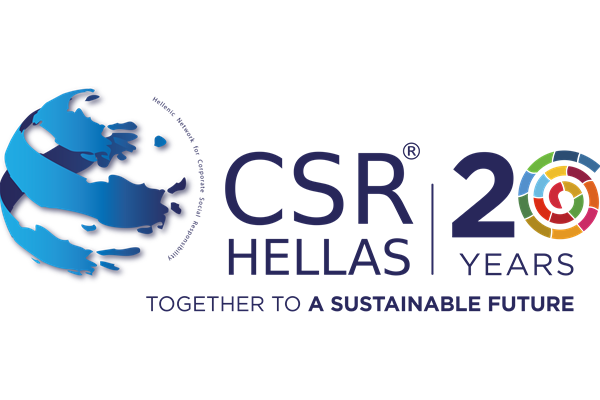EU Policy Updates September
Read below the latest updates in EU regulations. For more information about how these regulations might apply to your company, email Morris Massarutto, Senior Project Manager at mm@csreurope.org
1. EU Policy update webinar: Key Takeaways and What’s Next
As the summer break comes to an end, it is the perfect time to reconnect, reflect on key developments from the recent months, and look ahead to what is on the horizon. Before the holidays, on 17 July, we hosted a webinar on one of the most significant initiatives in Europe’s green transition: the Clean Industrial Deal (CID).
Launched in February 2025, the Clean Industrial Deal is Europe’s response to the urgent need to combine climate ambition with industrial strength. Inspired by the Draghi Report and the Competitiveness Compass, the CID aims to decarbonise traditional industries, accelerate the rollout of clean technologies, and position Europe as a global market leader, with a strong emphasis on circularity.
The webinar featured insights from both the European institutions and the business sector, covering the CID’s policy foundation, the Parliament’s role in ensuring competitiveness is rooted in sustainability, and how industry is already aligning with the CID while offering practical recommendations to maximise its impact across European sectors.
To complement the discussion, we also released a special EU Issue Insight examining how the Clean Industrial Deal can create new business opportunities and strengthen companies’ market positioning across Europe.
What’s Coming Up
We are continuing our commitment to keep you informed about the latest EU sustainability policy developments, with two more key webinars this year:
· 16 October, 10.00-11.00 CET – Green Claims & Empowering Consumers Directives
· 4 December, 10.00-11.00 CET – The EU’s Approach to Linking Sustainability and Competitiveness
2. Commission introduces Voluntary Sustainability Reporting Standard to ease burden on SMEs
On July 30, 2025, the European Commission published a recommendation introducing a Voluntary Standard for SMEs (VSME) outside the scope of the Corporate Sustainability Reporting Directive (CSRD) along with a practical guidance on its application. The VSME aims to help them respond efficiently to sustainability data requests from large companies and financial institutions. It is also designed to make it easier for SMEs to secure sustainable financing and monitor their sustainability performance, strengthening their resilience and market position.
Developed by EFRAG, the VSME consists of two modules (see Annex I):
· Basic Module: Includes 11 disclosures and serves as a “target approach” for micro-enterprises, which are encouraged, but not required, to apply it fully or choose to report only selected parts. For SMEs instead, it represents the minimum reporting requirement.
· Comprehensive Module: Adds 9 disclosures to meet broader stakeholder expectations.
Unlike the mandatory ESRS, the VSME is simpler and not subject to audit. It excludes DMA and value chain impacts, focusing solely on a company’s own operations. Additionally, it is not aligned with international standards.
This recommendation is an interim solution to address market demands, pending the formal adoption of the VSME Delegated Act. The final standard’s content may differ based on ongoing negotiations between co-legislators under the Omnibus I proposal. A public consultation and stakeholder feedback period are planned prior to adoption.
Looking ahead, a voluntary reporting standard for SMEs with up to 1.000 employees is hence expected, based on this recommendation. This future standard will also serve as a “value-chain cap”, protecting non-CSRD SMEs from excessive reporting demands from their partners.
3. United States and European Union announce framework agreement on reciprocal, fair, and balanced trade
The United States and the European Union have announced a new Framework Agreement on Reciprocal, Fair, and Balanced Trade, reinforcing the world’s largest trade and investment relationship and paving the way for stronger transatlantic cooperation.
The agreement aims to eliminate trade imbalances, expand market access, and strengthen supply chains while supporting economic growth on both sides of the Atlantic.
Key elements include:
· Tariff reductions: The EU will eliminate tariffs on U.S. industrial goods and expand preferential access for U.S. seafood and agricultural products. The U.S. will simplify tariffs on EU exports, including automobiles, pharmaceuticals, semiconductors, and lumber.
· Energy and technology cooperation: The EU plans to procure $750 billion in U.S. energy products and $40 billion in U.S. AI chips by 2028.
· Investment flows: European companies are expected to invest $600 billion in U.S. strategic industries.
· Defence collaboration: The EU will increase procurement of U.S. defence equipment to enhance NATO interoperability.
· Standards and regulation: The EU will work to ensure that the Corporate Sustainability Due Diligence Directive (CSDDD) and the Corporate Sustainability Reporting Directive (CSRD) do not restrict transatlantic trade, including reducing administrative burdens on businesses (especially SMEs), proposing changes to the harmonised civil liability regime and climate-transition obligations under CSDDD, and addressing U.S. concerns about applying CSDDD requirements to non-EU companies with high-quality regulations.
· Future cooperation: Commitments to deepen collaboration on cybersecurity, digital trade, critical minerals, labour rights, and intellectual property.
With mutual investment stocks already exceeding $5 trillion, the Framework Agreement is seen as a first step toward expanding transatlantic trade and ensuring resilience in a changing global economy
4. Lagarde Warns that cuts to EU Sustainability Reporting (CSRD) could undermine ECB climate risk oversight
European Central Bank President Christine Lagarde has warned European lawmakers that proposals to reduce sustainability reporting and due diligence requirements could hinder the ECB’s ability to manage climate-related financial risks. In a letter addressing the European Parliament ahead of debates on the European Commission’s Omnibus I package, Lagarde highlighted that the package aims to cut the regulatory burden for companies by significantly narrowing the scope of the Corporate Sustainability Reporting Directive (CSRD) and Corporate Sustainability Due Diligence Directive (CSDDD), among other measures.
Lagarde emphasized that the ECB has integrated climate considerations into its monetary policy, collateral frameworks, and risk assessments, and that high-quality firm-level data is essential for evaluating climate-related financial risks. She warned that the proposed scaling-back of CSRD and CSDDD would reduce the availability of this data, potentially weakening the ECB’s ability to implement climate-related measures. Lagarde urged lawmakers to ensure that any amendments balance reducing the regulatory burden with maintaining the benefits of sustainability reporting for both the European economy and financial system.
5. Call for Applications
5.1. Expert Group on Forced Labour – deadline 15/9/2025
The European Commission has opened a call for applications to join its new Expert Group on Forced Labour, with a deadline of 15 September 2025. The group will play a key role in supporting the implementation of the upcoming EU Regulation prohibiting products made with forced labour, which enters into application in December 2027.
Bringing together representatives from business, civil society, academia, and international organisations, the Expert Group will:
· Advise on the practical implementation of the regulation
· Provide input on guidance and secondary legislation
· Share best practices and risk indicators
· Contribute to tools and support measures, particularly for SMEs
5.2. European Climate Law Amendment- deadline 15/9/2025
Until September 15, the European Commission is inviting stakeholder feedback on a proposed amendment to the European Climate Law, which introduces an intermediate 2040 target to reduce net GHG emissions by 90% (see the public consultation).
Building on the existing 2030 target of a 55% reduction, the proposal outlines a more pragmatic and flexible pathway towards achieving climate neutrality by mid-century. Key features include:
· Limited use of high-quality international credits from 2036;
· The inclusion of domestic carbon removals in the EU ETS;
· Cross-sector flexibility, allowing Member States to offset underperformance in one area (e.g. land use) with overachievement in another (e.g. transport or waste).
It also highlights the need to strengthen enabling conditions: supporting a competitive EU industry, ensuring a fair and inclusive transition, and maintaining a level playing field globally.
5.3. The amended European Sustainability Reporting Standards (ESRS) – deadline 29/9/2025
EFRAG opened a 60-day public consultation on its revised and simplified European Sustainability Reporting Standards (ESRS) Exposure Drafts. This is a crucial opportunity for all stakeholders to provide feedback and directly influence the final standards.
We strongly encourage you to participate in this consultation to help shape a pragmatic and effective sustainability reporting framework for Europe.
The deadline to submit the comments is September 29, 2025.
5.4. Circular Economy Act – deadline 6/11/2025
On August 1, 2025, the European Commission opened a public consultation on the upcoming Circular Economy Act. It positions itself as a cornerstone of the Clean Industrial Deal, the EU roadmap that combines climate action with industrial strength, supporting the target of achieving a 24% circular material use rate by 2030.
Expected in Q4 2026, the initiative will enhance the EU’s economic security and competitiveness, while promoting more sustainable production, circular economy business models and decarbonisation. The Act will facilitate the free movement of circular products, secondary raw materials and waste. It will also increase the supply of high-quality recycled materials and stimulate their demand across the EU.
Stakeholders are encouraged to submit their feedback by November 6, 2025.
Lastly, the proposal lays the foundation for the EU’s post-2030 climate and energy legislation, putting a strong emphasis on cost-effectiveness, simplicity and efficiency.
LATEST NEWS








